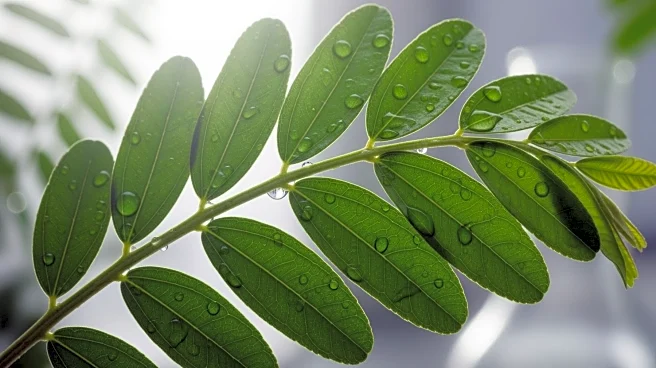What's Happening?
Researchers in Malaysia have discovered that methanolic extracts from the leaves of Ziziphus mauritiana, commonly known as Bidara, exhibit significant antimicrobial properties. The study, published in Scientific
Reports, evaluated various parts of the plant, including leaves, bark, roots, fruits, and stems, for their ability to inhibit bacterial and fungal strains. The findings revealed that leaf extracts showed the highest antibacterial and antifungal activities, outperforming other plant parts. The study utilized in vitro experiments to assess the antimicrobial effects, with leaf extracts demonstrating notable inhibition zones against Escherichia coli and Fusarium solani. Despite these promising results, the study emphasizes that these findings are preliminary and based on descriptive statistics, necessitating further research to confirm clinical efficacy.
Why It's Important?
The discovery of Bidara leaf extracts as a potent antimicrobial agent holds significant implications for the development of natural and effective treatments against bacterial and fungal infections. This could lead to alternative solutions in the pharmaceutical industry, particularly in the face of rising antibiotic resistance. The study highlights the potential of Ziziphus mauritiana as a source of bioactive compounds with pharmacological benefits, which could be harnessed for medicinal purposes. However, the lack of comprehensive toxicological data and clinical trials means that further research is essential to ensure safety and efficacy before these extracts can be considered for widespread use.










